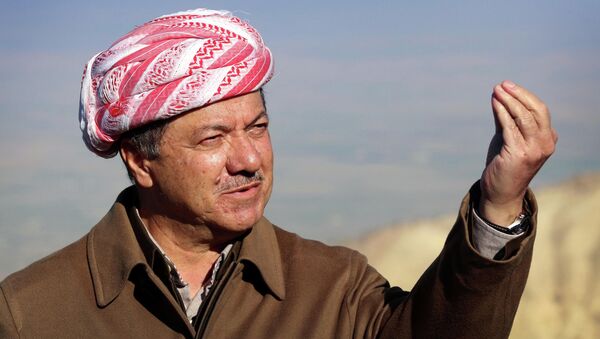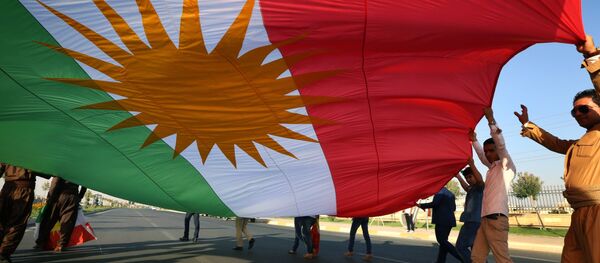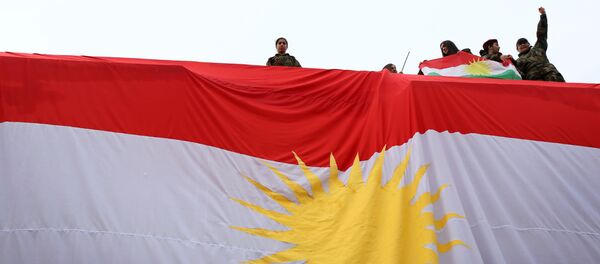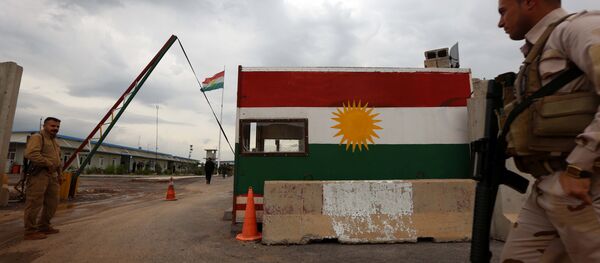"The KDP and Masoud Barzani have lost credibility due to political and economic crises that have crippled Kurdish politics and economy. The referendum is to regain a degree of credibility," Shunas Sherko Jdy, a member of the Diplomatic Relations Department of Gorran, said on the possible reasons of the referendum.
The politician noted that the referendum had been called "without consensus among political parties and legislative credibility since Kurdistan Parliament was paralyzed on October 12, 2015 by armed men of the KDP."
Among other reasons for the referendum, Sherko Jdy called the opportunities provided by the referendum to the KDP and Barzani "to establish a non-democratic family rule and state that they control."
"Masoud Barzani has moved Kurdistan towards becoming part of the sectarian conflict in the Middle East and this presents huge threats to Kurdistan because the Kurds are not part of this conflict and have no interest in them," Sherko Jdy noted.
"One can just look at the number of armed militias to realize that armed conflict is probably one of the greatest dangers. For some experts it could lead to the collapse of the Iraqi state and the division of Iraqi territory," Sherko Jdy suggested.
The politician reminded that the Mideast countries with significant Kurdish minorities such as Turkey, Syria and Iran, had expressed opposition to the referendum.
"Iran and Turkey are opposed to the referendum, especially Iran and they have warned of dire consequences for Kurdistan. Turkey… will accept another Cyprus if they maintain economic, military, and political control in Kurdistan, especially in KDP controlled territory where [Ankara] already has a number of military bases. Syria is not in position to take any steps that could seriously harm Kurdistan even though they oppose the referendum," the politician pointed out.
In June, Barzani set September 25 as the date for an independence referendum. The referendum will be held throughout Iraqi Kurdistan, as well as territories of the Nineveh, Kirkuk, Saladin and Diyala provinces claimed by both Kurdish Iraq and Baghdad.
Responding to the move, Iraqi government spokesman Saad Hadithi said that Baghdad would not back any unilateral steps taken by Iraqi Kurdistan aimed at gaining independence, as such moves would violate the country's constitution.
Iran's Foreign Minister Javad Zarif also called the planned referendum a "wrong choice" that would significantly undermine security of Iraq and the region.
The Kurds, making up about 20 percent of the Iraqi population, have been seeking self-governance for decades. In 2005, Iraq’s Constitution recognized Kurdistan as an autonomous region, run by the Kurdistan Regional Government.
The Kurdish independence issue is also complicated by the oil issue as after the referendum Baghdad risks losing a large amount of its oil reserves. According to Kurdish media reports, the Iraqi Kurdistan region has approximately 50 billion barrels of oil making around a third of Iraq's reserves.
The Kurds, making up about 20 percent of the Iraqi population, have been seeking self-governance for decades. In 2005, Iraq’s Constitution recognized Kurdistan as an autonomous region, run by the Kurdistan Regional Government.





